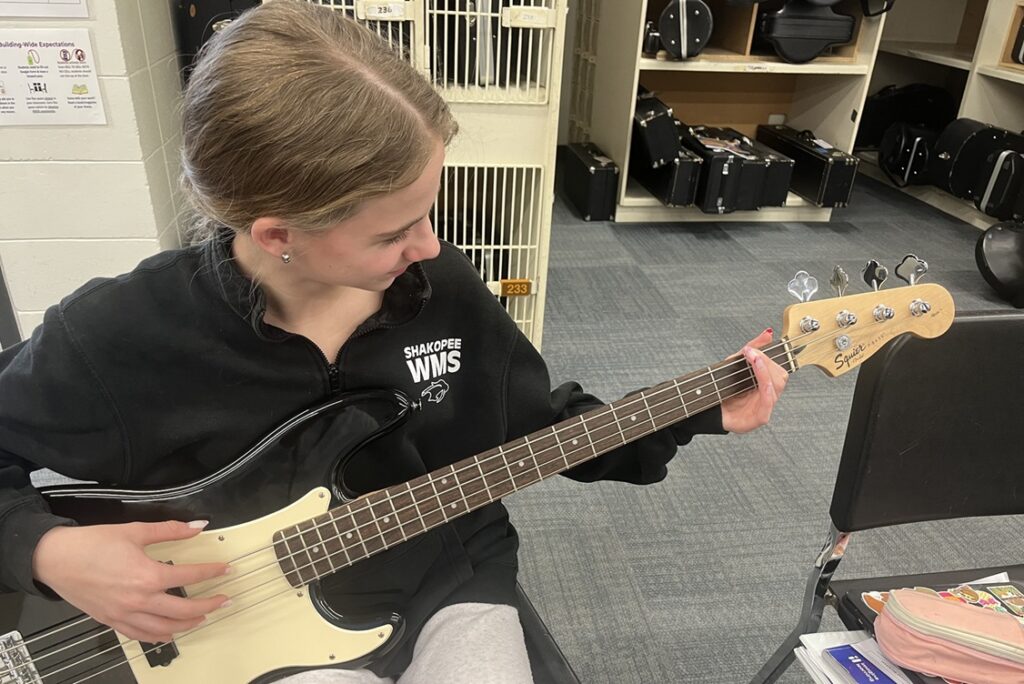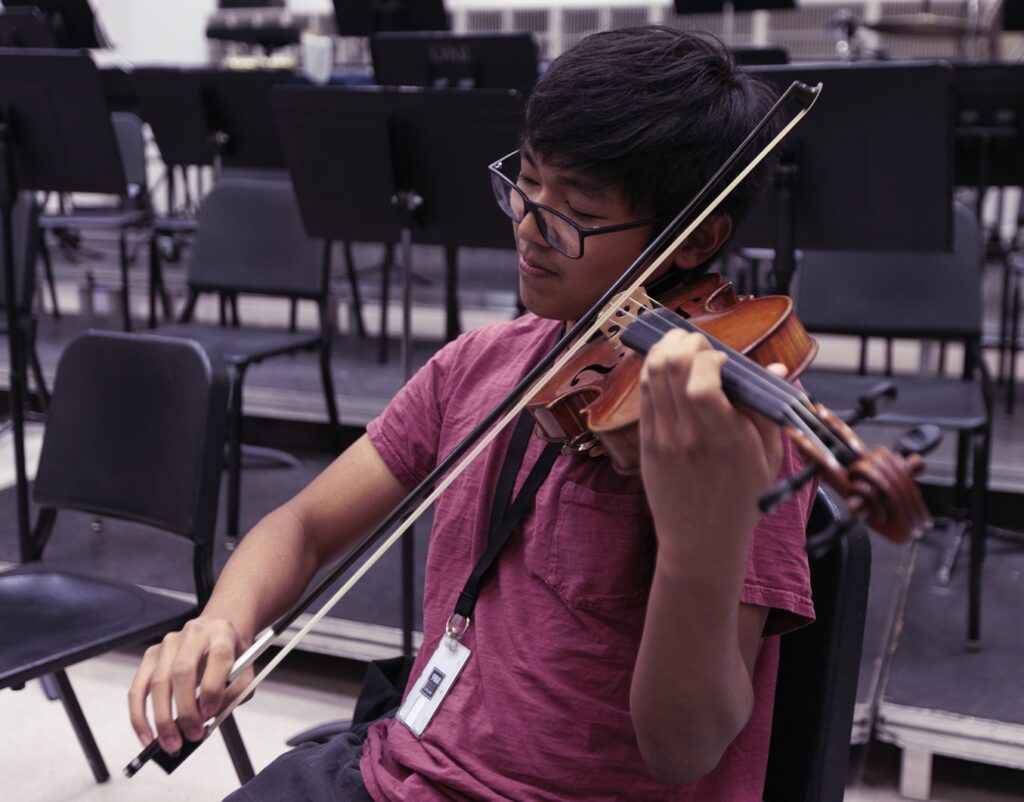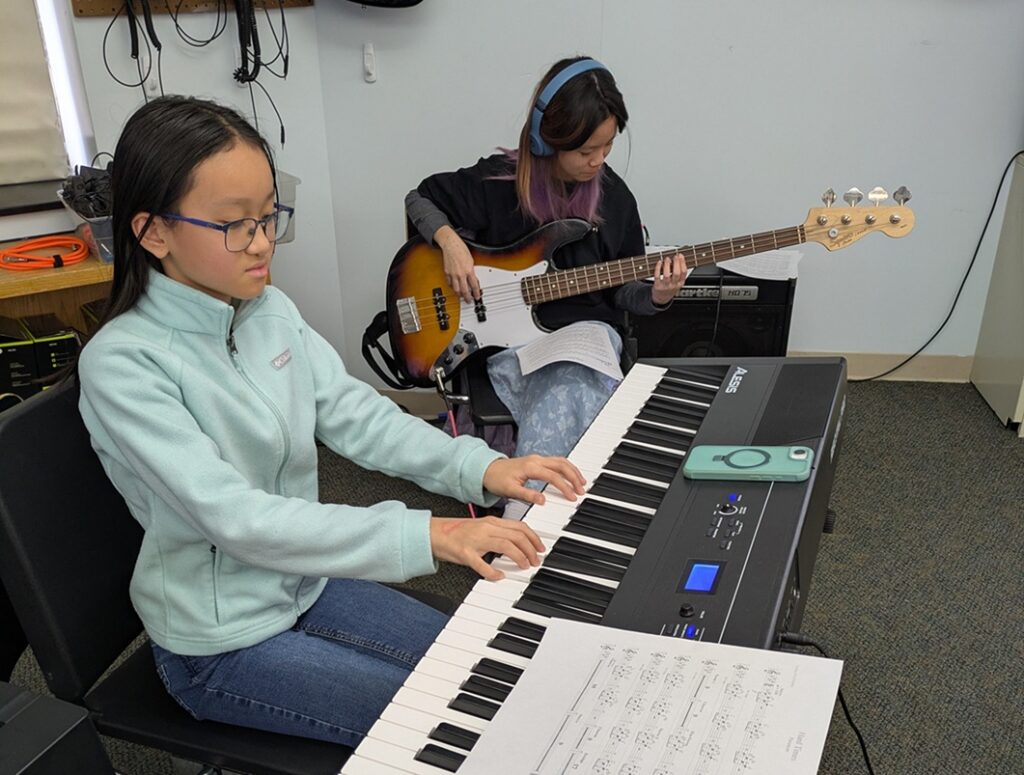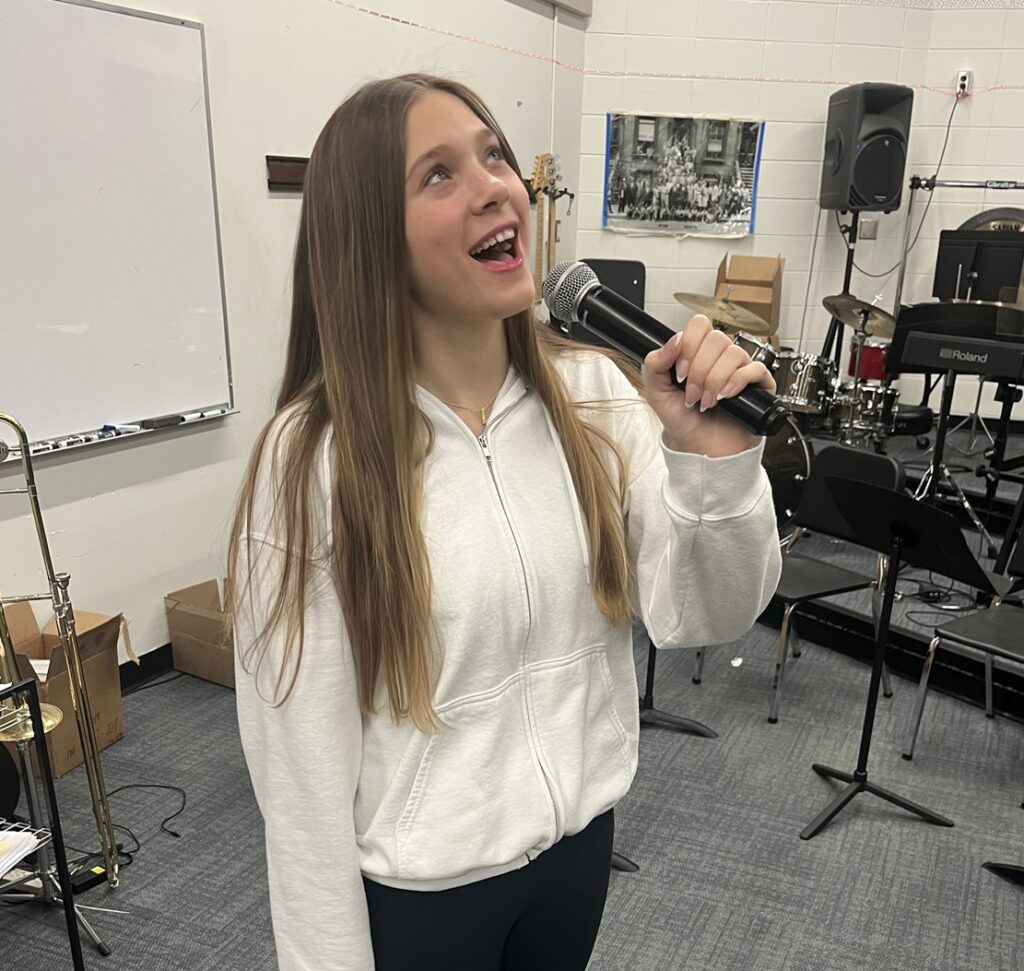Tagged Under:
Co-Directors and Assistants: Step Out of the Shadows
If you are in a secondary role to a band director, arm yourself with practical tips and insights to maximize your impact in the classroom.
Many articles and resources are tailored toward guiding head directors of school music programs, but what about the unsung heroes? Assistant directors and co-directors play a vital role in the success of a program. Starting in one of these positions is both rewarding and demanding. Let’s delve into some practical advice to help assistants or co-directors make the most of their time and navigate the school year successfully.
The Foundation is Communication

Many problems or neglect experienced by assistants and co-directors happen due to a lack of communication or a translation issues. Establish a relationship with your colleagues where you are comfortable speaking openly to them. This must be done by you — you cannot wait for this to happen to you, much like you cannot wait for students to learn their parts on their own.
An essential aspect of your role as an assistant or co-director is effective communication. Keep open channels with your head director, students and parents, which can make the difference between a chaotic environment and a harmonious one. Clear, concise communication can preempt misunderstandings and set the stage for a successful year.
Don’t Wait for Opportunities
If you sit around waiting for a cue, you might miss the entire performance. I still regret not counting my measures for a performance of “Into the Woods” when I was in high school and had to play the trumpet solo. I looked at the conductor, he looked at me, and then I did what any self-respecting trumpet player does — pretended my first valve wasn’t working!
Be proactive. From the obvious tasks like fixing equipment and ensuring that the music is ready, to the larger ones like proposing new initiatives, step up. Remember, it’s not always about whose job it is but rather getting the job done. Offer your ideas and you will not only earn respect but you will also get a chance to make a meaningful impact.
Consider this famous saying: “You don’t know what you don’t know.” This couldn’t be more true. If you need information, seek it out. Don’t wait for it to come to you because it might never show up.
Check Your Ego at the Door
Music education is all about the students, right? Yes, it is, but it’s also important to gain experience in the administrative aspects of the job, particularly if you want to grow and get better or move on to a different position at some point. My suggestion is to focus primarily on the students and enjoy anything else that comes up as a side benefit.
Remember, this is not a solo performance. Both assistant and head directors set the tone for the group. A clash of egos can easily throw everything off key.

Choose Annoyance Over Ambiguity
I once had a student who was making quite a few mistakes. I asked them to mark their music. They didn’t. I asked them again and then moved toward the stand. The stand was empty.
Me: “You don’t have any music!”
Student: “The music is in my heart, Mr. Stinson.”
Me: “Nice try — why didn’t you tell me?”
Student: “Because I thought you would be upset.”
I explained that yes, I would have been a bit annoyed that we’d have to get him another part, but now I was actually more irritated. However, I can relate to this student because when I was a student, I had my fair share of items that I would categorize under “not wanting to annoy” the head director.
Ask questions, clarify doubts and ensure everyone’s on the same page. If you have questions that don’t need to be dealt with right away, write them down and then schedule a weekly meeting to discuss these items. Often, you will find solutions to some of these problems before the meeting even occurs.
I give the same advice for speaking to administrators: bring solutions, not problems. If you are new to a program and a student asks you about a procedure for pep assemblies, for example, tell the student you’re not sure and that you will get back to them. Then, talk to your head director and tell them that you think this is the process but you wanted to check in so everyone is consistent.
Your Growth Doesn’t Stop
Professional development isn’t a luxury — it’s a necessity. Whether you attend workshops, webinars or simply read up on new methodologies, always look for ways to enhance your skills. If your school can only afford to send one director to a professional development opportunity, seek out other options. State and national conferences are helpful, but more and more organizations are offering professional development catered to needs and schedules.
Don’t forget more immediate resources. Your professional relationships can extend beyond your immediate work environment. Networking can provide a safety net, a sounding board and even future opportunities. Expand your relationships to other departments and you might find unexpected benefits. Interdisciplinary initiatives can enrich your program and diversify the learning experience for your students. Don’t be the music teacher who never leaves the music wing!
Document Your Achievements
Whenever you bring something notable to the program, document it. Whether you initiated a successful fundraiser or introduced a new teaching method, a record of your achievements can be crucial during evaluations or when advocating for another position. Check out my article on Changing Jobs: Improve Your Resume.

Feedback: A Two-Way Street
A successful program thrives on continuous improvement. Regularly seek feedback from your colleagues and don’t shy away from providing your own constructive critiques as well. If you have less experience, be genuine in how you speak.
“I really liked how you taught hemiolas today. It made me think of it in a different way. I’m going to steal that!”
Many of us have heard that the best teachers steal ideas from each other all the time.

Time Is of the Essence
With so many responsibilities, time management becomes essential. It’s not just about getting through the day but about maximizing each moment for you and your students. Prioritize your tasks and again, be proactive.
Don’t Be Defined by a Role
Your title might include the word “assistant,” but your capabilities aren’t limited. Bring your unique skills to the table and ensure that they become a part of the program’s fabric.
A common co-teaching or assistant relationship is the teacher-administrator. Running a music program is a big, busy job, and it often turns into one person who teaches while the other one takes care of the necessary administrative tasks. This situation may flip flop. If this works for your program, great.
Some educators find that co-teaching results in a lot of interruptions and disrupts a good flow in classroom management. However, a great synergistic relationship can elevate a classroom. If this doesn’t exist for you right now, and it’s something you and your colleague are interested in, be patient. It can develop over time.

There Will Be Conflict … And That’s Ok!
When disagreements arise, and they inevitably will, have a predetermined conflict resolution mechanism, which will save you a lot of heartache and tension in your working relationships. I once heard that most signed agreements are actually documents on disagreement. We don’t usually have agreements unless we are in conflict over something. Imagine how much easier your life would be if you had some of the tough decisions figured out ahead of time? No stress, no wasting your mental energy!
At the same point, you may find that something you had agreed to before no longer feels right (for example, your role in the program, the number of pieces for a concert, etc.). While I do think it’s important to honor commitments, I encourage you to have a discussion to see if there’s room for renegotiation. In situations like these, being proactive can help. Work with your colleague and revisit important items every year, every six months or in some cases, every concert cycle.
Consider this: If two people were exactly the same and agreed on absolutely everything, one of them would be unnecessary.
Navigating Preferences with Tact
Preferences are natural — students or parents may favor one director over another. Handle with care! Respond with tact, emphasizing that the program is a team effort. If they persist, simply reiterate your team-oriented philosophy.
Your Voice Has Value
Although you might be working alongside more experienced colleagues, remember that your perspectives and insights are valid. Stand your ground when necessary, but always with respect and an open mind.

Compromise Out Loud
This is an important one for everyone — not just assistant directors — to remember. Compromises can be viewed in a couple of different ways: We can agree and everyone is happy, or we can agree and everyone is settling for less than what they wanted.
You’ll have to work through successes and failures to figure out what is best for each situation. However, if there is something you want from the start, I urge you to speak up immediately. If you are open to compromising, do so after you have spoken your wants or needs.
Too many times, I thought about something that I wanted, but compromised in my head and spoke this compromise out loud. In some instances, the receiver wanted further compromises, which put me in a position of giving up even more of what I wanted.
One time, I thought, “I’d love to conduct two more pieces at the concert, but I’d settle for even just one. I’ll offer up one.”
The response: “Yes, let’s do one piece, but just at the next concert. We’ll evaluate after that.”
I’m not trying to paint head directors as control freaks — this is just a recollection of a past experience.

Adaptability: Your Secret Weapon
The world of music education isn’t static. New techniques, technologies and methods are always on the horizon. Being open to them not only benefits the program but also enriches your professional journey. It could make you indispensable to your program. So, be open and be on the lookout for tools that’ll make your job easier!
________________________________________
Being an assistant or co-director in a school music program presents unique challenges but it also offers fulfilling opportunities for growth and impact. Embrace the multifaceted role you play, and don’t forget that your contributions are invaluable for the program’s success. Use these tips to navigate the complexities and joys of your position, and you’ll not only survive the school year but thrive in it.















